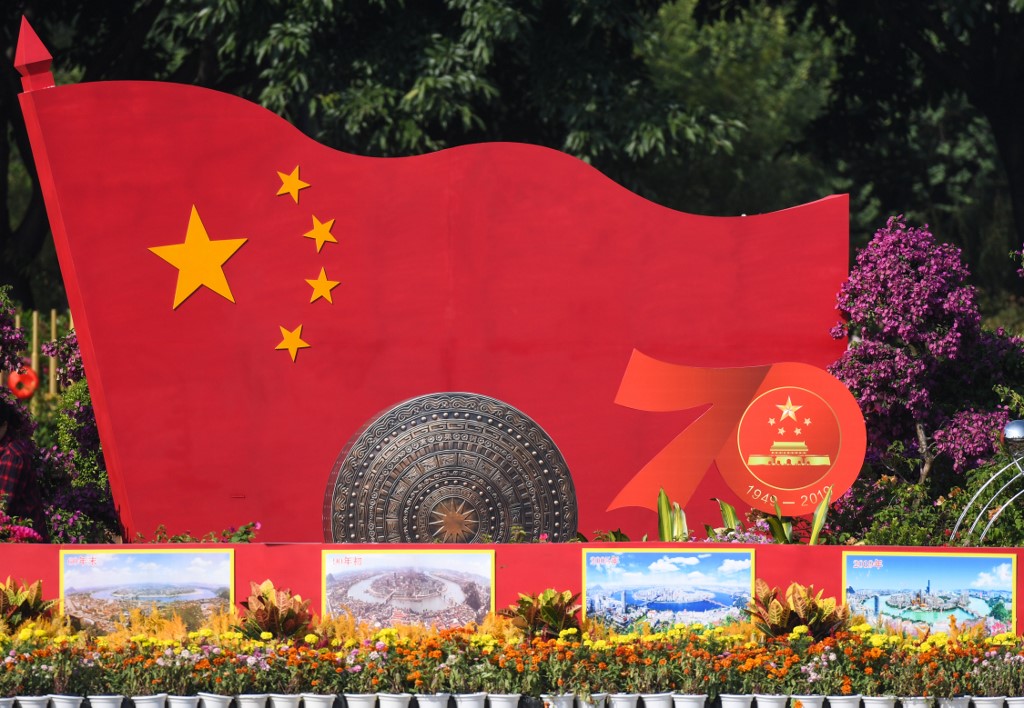(ATF) A plethora of top leaders from all sections of Chinese government and industry have met and announced a “brand power project” to launch a new image for China in 2021.
In much the same way as a major corporation will change its corporate identity, China’s leadership has told top propaganda officials, police, regional leaders and even top Chinese brands such as Maotai to come up with a rebranding – for the country.
This kind of exercise is referred to as ‘soft power’ – using media, influence and other means to advance national interests.
2020 has not been a good year for China’s image, so it has been decided to rebrand.
After lockdowns to counter the coronavirus and hotly disputed allegations about China’s role in the spread of the pandemic, there were severe economic impacts at home and abroad; a wave of business setbacks and diplomatic disappointments. Many foreign journalists have been expelled, and countries such as the United States, Australia, plus others in Europe are tightening rules for PRC officials, media and businesses.
“Following the instructions of leading comrades,” China Central Radio and Television, in conjunction with relevant central ministries and commissions, propaganda departments of some provinces, autonomous regions and municipalities, plus well-known companies, launched the Brand Power Project – with the slogan “Relying on the headquarters”.
All their media resources will be deployed “to cultivate the national brand in the new era.” And as all media is state-owned and controlled, the exercise should create a widespread new image.
Shen Haixiong, deputy minister of the Central Propaganda Bureau and Director of China Central Radio and Television, said Chinese media has sailed into the broad world of “fishing and leaping”.
“We are striving towards a world-class new mainstream media, with strong leading and dissemination power,” Shen said.
Party’s 100th anniversary
As 2021 is the 100th anniversary of the founding of the Communist Party of China, Shen said: “The headquarters will accelerate the transformation from traditional radio and television media to an all-media organisation for world-class original audio-visual production and distribution.”
This would mean shifting from a traditional program production and broadcasting model to deepening the structural reform of the content production and supply side, and from the traditional technology layout to ‘5G+4K /8K+AI’ in a strategic pattern of change.
In a bombshell statement, he added that the project would strive over three to five years to create boutique programmes and branded columns that account for more than 80% of all programmes shown in Taiwan.
This was a reaction, one must assume, to Taiwan recently passing legislation to try and stop the mainland’s aggressive move to take over media on the island.
In 2021, state media will take the leading role in this rebrand of the nation and the economy, with an aim to optimising its communication services to “brand partners”, and making further contributions to accelerating the formation of a new development pattern with domestic and international cycles. This, it hopes, will bring “great power”.
At the meeting, besides bigwigs from the government and CCTV were executives from Moutai, Wahaha, JD, Lenovo, Baoneng, China Post, COFCO, Huawei, Haier, China UnionPay, Shandong Provincial Department of Culture and Tourism, and Gome.
They all signed on to be part of the 2021 Brand Power Project under strategic partnership agreements.
The Shanghai Xunmeng Information Technology Co Ltd, which runs Pinduoduo, the country’s second largest online marketplace, signed up to the 2021 Brand Power Project and to be the 2021 Spring Festival Gala exclusive red-envelope interactive partner.
These firms’ powerful advertising budgets will then align with the project, to be part of Chinese President Xi Jinping’s “transformation” of the country.
























